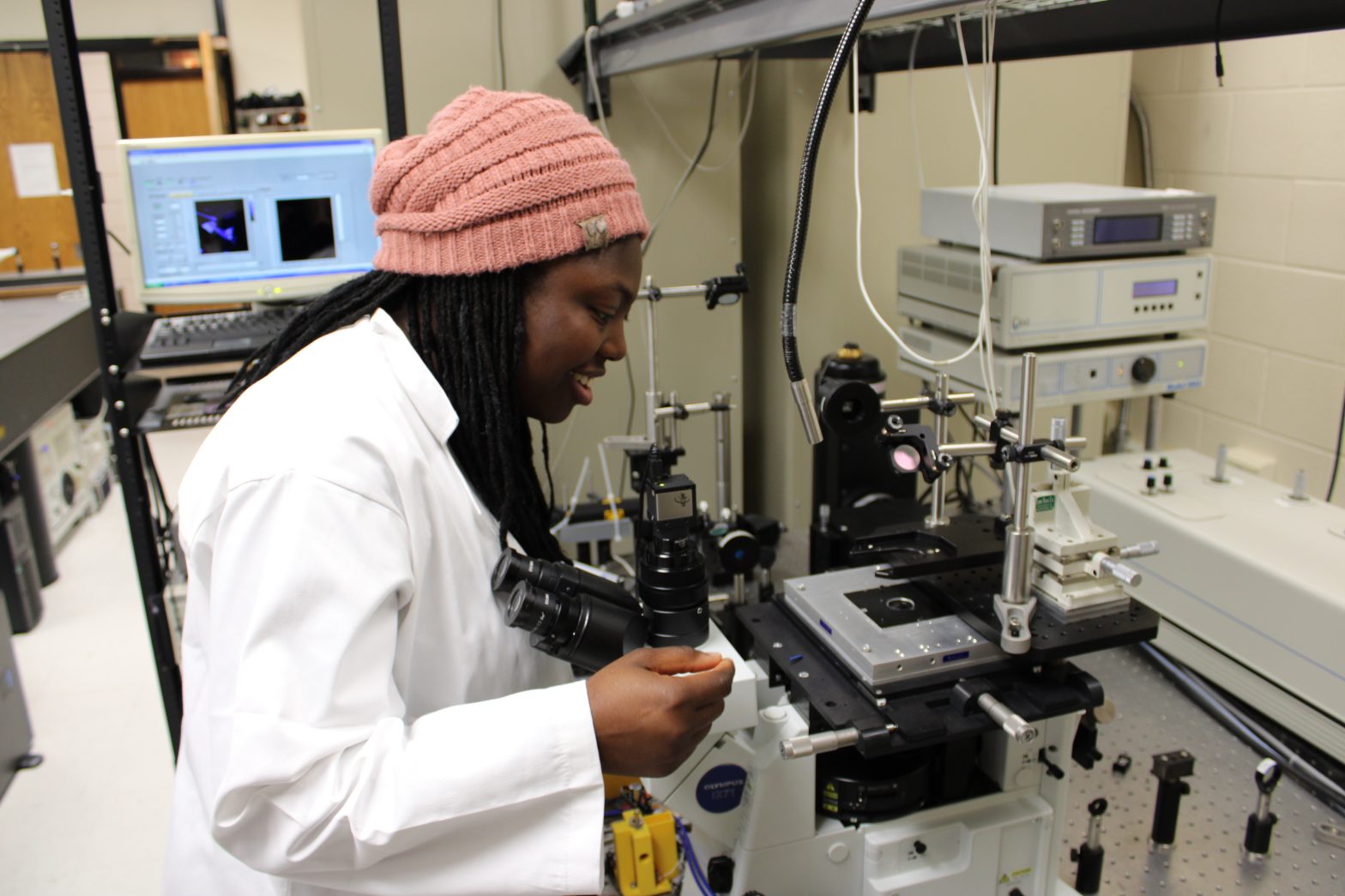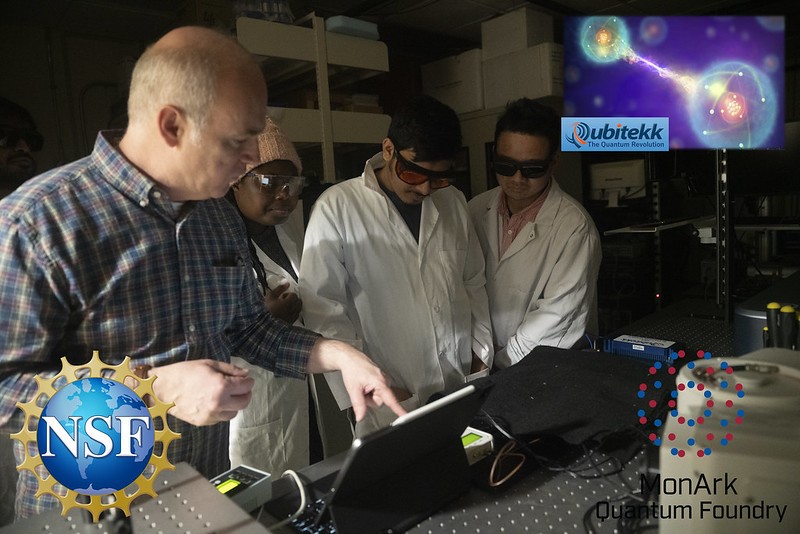QIS Coursework & Certificate Approved by SDBOR

Picture: QIS Research Student, Tolulope Anjuwon, in a South Dakota Mines Department of Nanoscience & Biomedical Engineering Lab
Article provided by Jade Herman, South Dakota Mines.
As part of the South Dakota Mines’ participation in the National Science Foundation-funded MonArk Quantum Foundry, South Dakota Mines is offering coursework in quantum computing and quantum communications. The donated quantum mechanics laboratory kit, valued at approximately $50,000, will be used in a laboratory section of a course on quantum communications.
The South Dakota Mines Department of Nanoscience & Biomedical Engineering in Rapid City, SD has been gifted a $50,000 quantum mechanics laboratory kit from industry pioneer Qubitekk to be utilized by students in a series of new courses being offered in quantum information science (QIS).

Pictured: South Dakota Mines students and faculty make single-photon measurements using equipment donated by quantum communications industry pioneer Qubitekk.
Steve Smith and Robert Anderson, faculty in the Department of Nanoscience & Biomedical Engineering, will teach the new courses.
QIS includes efforts to develop quantum computers, quantum sensors and secure communications networks, all of which have an advantage over their classical counterparts due to the intrinsic properties of quantum mechanics, says Smith. Currently, QIS is a cutting-edge research area supported by federal funding agencies the NSF, DOE, NIH, but a growing industry and emerging job market are taking this research and putting it into practice.
In support of their research in low-dimensional quantum materials — a part of the National Science Foundation-funded MonArk Quantum Foundry — Smith and Anderson conceived the courses to give engineering and science majors practical training in quantum materials, quantum computing and quantum communications.
The courses — NANO 402/502 Quantum Materials, NANO 404/504 Nanophotonics, NANO 405/505/L Quantum Photonics and Communications and NANO 406/506/L Introduction to Quantum Computing — were designed as engineering electives. They are anticipated to be added to the curriculum for nanoscience and nanoengineering, electrical engineering, physics and other majors contingent on department approval. Three of the courses comprise a certificate in quantum communications, which was approved by the South Dakota Board of Regents at the Dec. 14 meeting.
To supplement the new coursework, Qubitekk donated the quantum laboratory kit, which includes single photon detectors, fiber optics, counting electronics and Qubitekk’s proprietary bi-photon source. These components are the critical elements necessary to implement a secure quantum communications network based on entangled photon pairs, generated by Qubitekk’s bi-photon source. Entangled photons are used in Qubitekk’s Quantum Key Distribution (QKD) system, a system in which the security of a cryptographic key is guaranteed based on the principles of quantum mechanics.
The security of conventional cryptography is gauged by the computational challenge of breaking a code, which weakens as computer power advances. The security of quantum communications is independent of computational power. It is based on the laws of physics, which are presumed immutable, says Smith.
“These courses support our research in quantum materials, especially their nonlinear optical properties, which are important in generating entangled photons used in QKD networks,” says Smith. “The courses on nanophotonics and quantum computing also leverage our research developing meta-surfaces.” Meta-surface research at Mines is led by Shan Zhou, assistant professor in the Department of Nanoscience & Biomedical Engineering.
“Since the majority of the components in quantum networks are also used in conventional communications networks, these courses are useful to anyone interested in optical communications or any application which uses modern lasers or fiber optic systems,” says Smith.
“Thanks to the support of Qubitekk, South Dakota Mines students can get hands-on training with state-of-the-art equipment while studying the principles of quantum communications and quantum computing,” says Smith. “Photonics, quantum computing and quantum communications are so-called National Science Foundation industries of the future. At South Dakota Mines, the future is now. Students should look for these offerings beginning in spring 2024.”
###
MEDIA CONTACT
Dr. Jade Herman, Chief of Staff
Office of the President
South Dakota Mines
Jade.Herman@sdsmt.edu
(605) 394-1718
 National Science Foundation RII Track-1 Project:Expanding Research, Education and Innovation in South Dakota
National Science Foundation RII Track-1 Project:Expanding Research, Education and Innovation in South Dakota